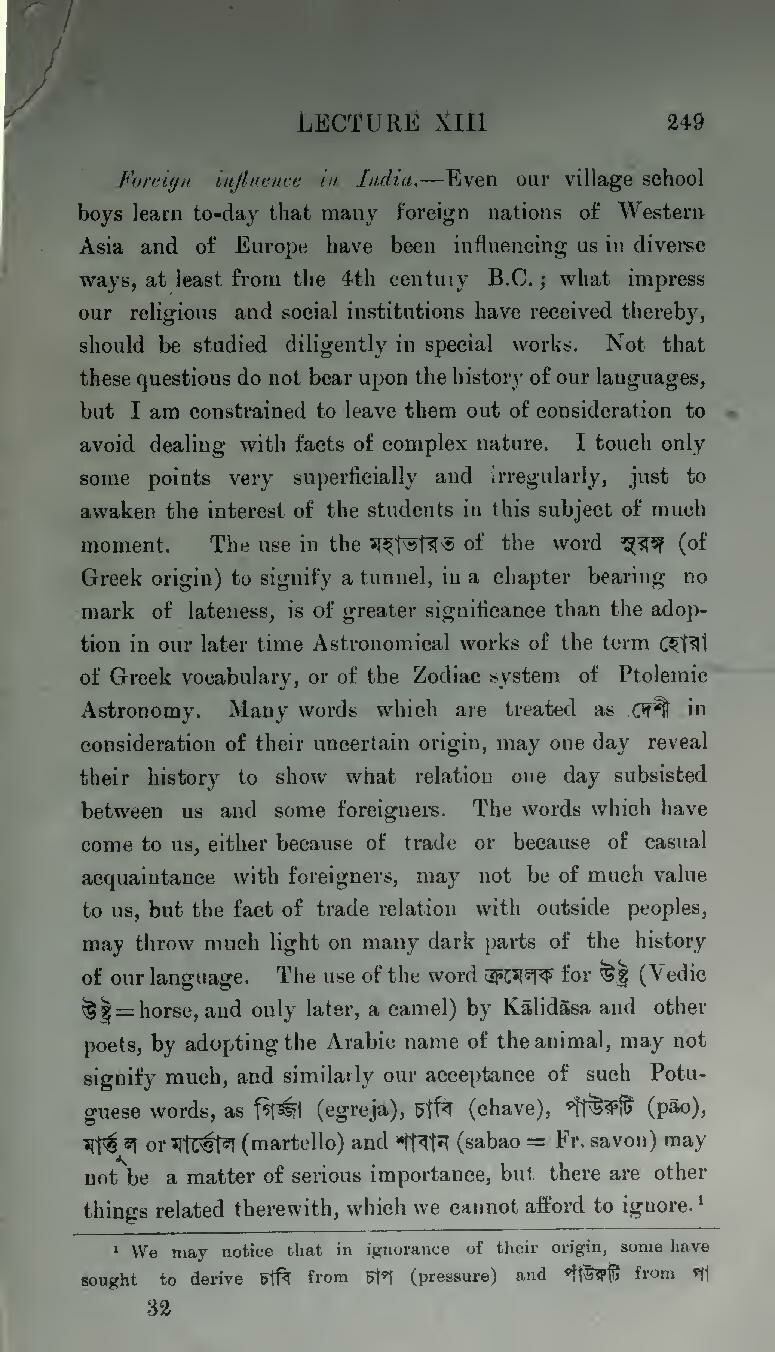Foreign influence in India.—Even our village school boys learn to-day that many foreign nations of Western Asia and of Europe have been influencing us in diverse ways, at least from the 4th century B.C.; what impress our religious and social institutions have received thereby, should be studied diligently in special works. Not that these questions do not bear upon the history of our languages, but I am constrained to leave them out of consideration to avoid dealing with facts of complex nature. I touch only some points very superficially and irregularly, just to awaken the interest of the students in this subject of much moment. The use in the মহাভারত of the word সুরঙ্গ (of Greek origin) to signify a tunnel, in a chapter bearing no mark of lateness, is of greater significance than the adoption in our later time Astronomical works of the term হোরা of Greek vocabulary, or of the Zodiac system of Ptolemic Astronomy. Many words which are treated as দেশী in consideration of their uncertain origin, may one day reveal their history to show what relation one day subsisted between us and some foreigners. The words which have come to us, either because of trade or because of casual acquaintance with foreigners, may not be of much value to us, but the fact of trade relation with outside peoples, may throw much light on many dark parts of the history of our language. The use of the word ক্রমেলক for উষ্ট্র (Vedic উষ্ট্র = horse, and only later, a camel) by Kālidāsa and other poets, by adopting the Arabic name of the animal, may not signify much, and similarly our acceptance of such Potuguese words, as গির্জ্জা (egreja), চাবি (chave), পাঁউরুটি (pāo), মার্ত্তুল or মার্ত্তোল (martello) and শাবান (sabao = Fr. savon) may not be a matter of serious importance, but there are other things related therewith, which we cannot afford to ignore.[1]
- ↑ We may notice that in ignorance of their origin, some have sought to derive চাবি from চাপ (pressure) and পাঁউরুটি from পা
